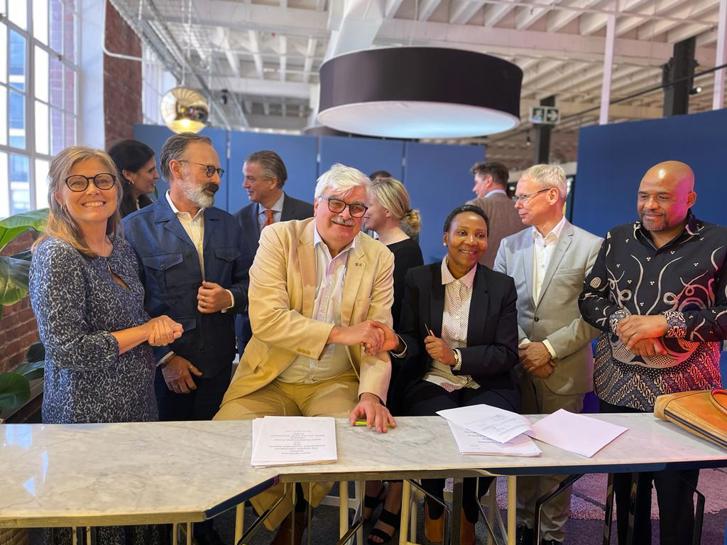Sweden and the Southern African Development Community- Parliamentary Forum (SADC PF) have signed a collaboration agreement worth about R89,7 million to fund the promotion of sexual reproductive health and rights (SRHR) and HIV/AIDS-related services

The global community has recognised that SRHR is integral to sustainable development. To attain developmental goals, support for initiatives promoting SRHR is necessary. SRHR is fundamental to advancing human rights, democracy, and gender equality. Sexual reproductive health and rights allow men, women, adolescents, and gender non-conforming people to assert bodily autonomy and positively define our shared futures.
The new three-year cooperation agreement "SRHR, HIV/AIDS & Governance Project" (2023-2026) builds on previous collaborations between Sweden, SADC PF, and affiliated national parliaments in the region. This new phase ensures that results obtained in prior agreements will be upscaled. SADC PF has drafted Model Laws, minimum standards, and other normative guidelines to assist SADC member states in streamlining SRHR services and inspire governments to provide more funding for SRHR. Model laws on gender-based violence and child marriage have already been adopted at a regional level, which has led to Members of Parliament (MPs) in several countries, including Lesotho, Malawi, Namibia, and Angola, to table motions and pose oversight questions to address gender equality, domestic violence and SRHR.
Boemo Mmandu Sekgoma, Secretary General of the SADC PF, said:
"The agreement with Sweden provides new opportunities to promote access to SRHR for all people in the SADC region through legislation, additional funding to SRHR.... and voters will have an influence on the SRHR agenda through their elected representatives."
The latest agreement will encourage discussions that will probe regional SRHR policies and the progressive enactment of legislation promoting SRHR access. Additionally, as SADC PF strives to foster a culture where SRHR norms and best practices are upheld, the collaboration will enhance its role in the region and beyond to leverage democratic frameworks that hold governments accountable for SRHR and HIV/AIDS governance.
Although progress is being made in the area of SRHR, there is a continued need for initiatives that support the enforcement and respect of human rights to ensure that all people have access to SRHR. This is of fundamental importance, especially in the more sensitive areas concerning the rights of LGBTQI people, access to safe abortion and sex education.
Elisabeth Hårleman, Head of Development Cooperation for the regional SRHR team, remarked:
"Sweden has financed SADC PF through Sida since the project's first phase began in 2014. The collaboration has laid the foundation for a continued new project and mutual trust in the future. SADC PF is an important part of the work to promote SRHR, where countries can take inspiration from the valuable model laws that are developed and for individual countries to build on other countries' experiences. What distinguishes SADC PF is that it is a partner that has the capacity, knowledge and systems to implement projects effectively."
Sweden and SADC PF's collaboration is rooted in a shared commitment to democracy, human rights, and transparency. The new cooperation agreement will strengthen the links between regional and national work on SRHR, enabling people in the SADC region to hold decision-makers accountable at national and regional levels. By monitoring and advocating for SRHR budgets that are sustainable and responsive to citizen needs, MPs will be able to promote parliamentary interventions that are inclusive, accountable, and democratic. In this vein, the SRHR Project will also act as an active enabler for parliaments to play their part in implementing the Sustainable Development Agenda 2030, especially SDG 3 relating to health and well-being and SDG 5 on gender equality.